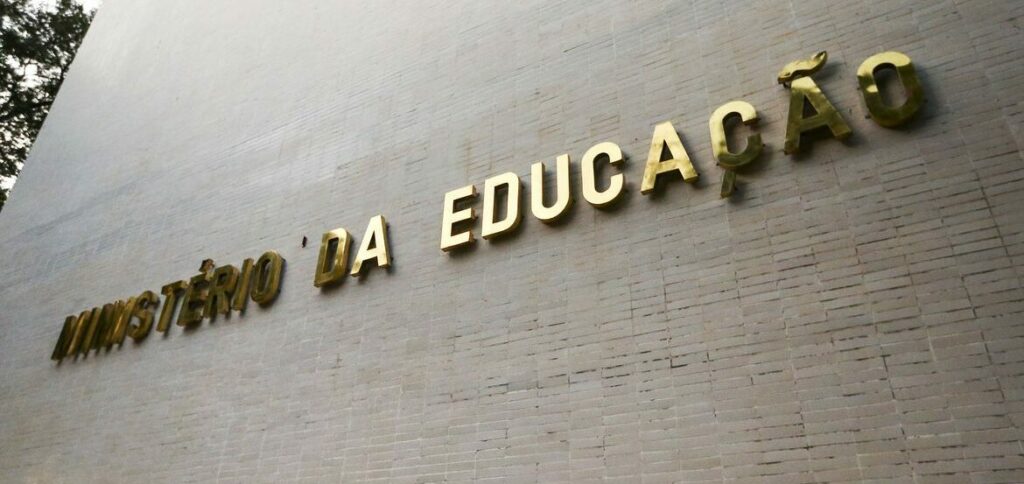For Priscilla Cruz, executive president of the platform, the evaluation of the set of actions in the period leads to the conclusion that the Bolsonaro government “sabotaged Education”. According to her, the government did not propose anything substantial to boost the pace of progress that was being maintained or, at least, to mitigate the damage and inequalities brought about by the pandemic.
ADVERTISING
“In recent years, it was the leading role of the National Congress and the states and municipalities that prevented a greater tragedy”, he states.
According to the report, the period revealed a collection of wrong choices in the direction of the Ministry of Education (MEC). In addition to several appointments – five, in three and a half years –, there was a lack of planning for the area and support for the states before, during and after the pandemic. Management, the analysis points out, revolved around “customary guidelines and disconnected from real needs, incapable of changing the learning curve for children and young people on a large scale or advancing the structural demands of the area”.
According to the report, a separate chapter of current management in education is the budget issue. The area has been going through consecutive contingencies, blockages and cuts since the beginning of the mandate. “The poor budgetary execution of the department, widely registered by Todos Pela Educação, highlights the neglect and lack of priority for the area throughout Bolsonaro’s mandate”, points out the document.
ADVERTISING
See the timeline built by the platform for the Bolsonaro government period:
2019
January
- Appointment of minister Ricardo Vélez Rodríguez
- Lack of consistent policies and management equipment in favor of ideological agendas of interest to the government.
- Vélez promegive emphasis to moral and civic education in schools, at all stages of Basic Education.
February
- The agenda is presented, but without details or a structured plan. The literacy policy was highlighted among the government's 100 priority goals.
- First ministry crisis. Vélez proposes that school directors present students with a letter with Bolsonaro's slogan and film the students during the playing of the National Anthem.
- The action, unprecedented in the history of the department, demonstrated what would become frequent in the MEC: lack of focus on issues relevant to the area.
March
- Vélez suspends student literacy assessment for two years.
- Carlos Nadalim is appointed Secretary of Literacy at the MEC and becomes the target of criticism for having no experience with public management, being aligned with the philosopher Olavo de Carvalho and being an enthusiast of homeschooling.
- Vélez's public exhaustion and disputes between the so-called “olavistas” and the military provoke a series of dismissals affecting both sides at the top level of the MEC.
- This was the harbinger of ideological disputes and musical chairs that would mark the ministry over the years.
April
- A decree on the National Literacy Policy was sanctioned but there is a lack of clarity on its implementation.
- Without a printing company to print the tests or a coordinator, Enem 2019 is threatened.
- Vélez dismisses the president of Inep (National Institute of Educational Studies and Research Anísio Teixeira), Marcus Vinicius Rodrigues, after the controversy involving the end of the literacy assessment.
- Paulo César Teixeira, director of Basic Education Assessment (the department responsible for carrying out the Enem), resigns.
- New printing company is hired to print the Enem tests, without bidding.
- A photo of the writing test leaks onto the internet during the exam. The Court even suspended the dissemination of Sisu (Unified Selection System).
- Olafista Abraham Weintraub takes over, but his management is chaotic, marked by intense ideological persecution of federal universities and bravado on social media.
- The MEC announces the freezing of R$1,7 billion in university spending, out of a total of R$49,6 billion. Four thousand and five hundred scientific initiation, master's or doctorate scholarships are suspended.
- In just over three months, there have been 18 changes of MEC positions. Technical monitoring carried out by Todos Pela Educação, at the time, confirmed the diagnosis of a strike.
July
- The MEC presents a plan for the implementation of 108 civic-military schools by 2023 – with reserve military personnel as tutors for the new units.
- Experts criticize the mistaken and exclusionary pedagogical model, instead of the priority to Full-Time Education, which would benefit a much wider population of Public Basic Education students.
August
- The MEC publishes the National Literacy Policy (PNA) notebook.
- The material is analyzed by experts as an insufficient theoretical framework to support effective public policy.
September
- The MEC withdraws support for the proposal that provides for permanent Fundeb (Basic Education Maintenance and Development Fund), on the grounds that increasing the supplement from 10% to 40% would be unfeasible from a fiscal point of view.
- President Jair Bolsonaro orders the MEC to create a bill to prohibit addressing gender issues in elementary schools.
- Weintraub delivers a letter to the education networks resuming the guidelines of the Escola sem Partido movement.
2020
January
- Six thousand candidates are affected by an error in correcting the Enem, which Weintraub refers to as a “little problem”.
March
- The diagnosis of paralysis is pointed out by Todos Pela Educação and the external committee of the Chamber of Deputies, according to which Minister Weintraub was more focused on ideological issues than on the interests of Education.
- Covid-19 arrives in Brazil and an unprecedented health crisis begins, which would profoundly affect education.
- Schools close their doors and Brazil would become the fourth country in the world that kept children away from face-to-face classes for the longest time, triple the amount of time compared to richer countries.
- Education networks use technological infrastructure without support from the MEC. There is an omission in the coordination and articulation of guidelines, which, in the end, are supplied by entities outside the government, such as third sector organizations.
May
- The MEC postpones Enem 2020 to the following year, but with no indication of adapting university calendars or proposing to recompose students' workload.
July
- Carlos Decotelli is nominated but does not occupy the main chair of the MEC, after universities denied the doctorate and post-doctoral degrees that the candidate had reported on the Lattes platform. He was also accused of plagiarism in his master's thesis at FGV (Fundação Getúlio Vargas).
- The MEC proposes to change central points of the text of the PEC (Proposed Amendment to the Constitution) for the renewal of Fundeb, such as that it would only be in force in 2022 and not in 2021, as proposed by Congress.
- The episode showed the government's lack of communication with the area's needs, in a pandemic context, which required rapid approval of the fund.
July
- Milton Ribeiro takes over, with no experience in public policies, in one of the most worrying scenarios of the pandemic, with the prolonged closure of schools.
- Once again, the customs agenda received prominence and its management was marked by an omission in the coordination of Education in the face of the pandemic.
August
- The new Fundeb is approved by Congress and brings a well-designed policy, focused on reducing inequalities and with new incentives to advance educational quality indicators.
October
- The MEC belatedly releases a guide with guidelines for the possible return to in-person classes. Experts estimate that support for the networks remained timid, which was even more evident due to the department's low budget execution that year.
- The decree establishing the National Education Policy for Students with Disabilities comes into force, analyzed by experts as one of the biggest setbacks in the area of inclusion in recent decades.
- The provision, which encouraged the creation of specialized schools to serve people with disabilities, would be suspended in December of that same year after a lawsuit alleging unconstitutionality.
2021
January
- Unlike other countries, the MEC did not map the impact of the pandemic on students' lives. And it ignored the erosion of education in Brazil indicated by entities and organizations, such as Unicef, Todos Pela Educação, World Bank and OECD, among others.
- Enem 2020 has the lowest participation of the decade and Minister Ribeiro attributes the drop to teachers. At the time, experts and Todos Pela Educação raised a series of concerns about the plan for administering the exam and health security.
March
- The federal government lists Home Education as the MEC's only priority, in a letter with 35 proposals to the National Congress. In addition to being pedagogically mistaken, the modality reaches only 0,04% of students, leaving aside support for networks, during the period of remote teaching, and structural issues, such as the regulation of Fundeb and the National Education System.
July
- The MEC defends the return to classes, but without due support for adapting networks to health needs, such as ventilation of spaces.
- On the day of the announcement, the country recorded 1.425 deaths from Covid-19 in 24 hours.
November
- Ribeiro announces a project to implement 216 civic-military schools across the country by 2022. Again, a proposal out of balance in relation to the real needs of Public Basic Education, which was experiencing the gradual reopening of schools and was grappling with deepening inequalities.
- The Enem 2021 edition takes place amid layoffs at Inep and rumors of exam questions being changed due to ideological problems.
- Minister Ribeiro denies this, but the MPF (Federal Public Ministry) identifies an “ideological court” on the part of the government.
- The president of the municipality in that period, appointed by Ribeiro, was Danilo Dupas Ribeiro (fifth to assume the post since 2019).
- Dupas is accused by employees of promoting a dismantling of the body, with decisions without technical criteria, and of moral harassment.
2022
February
- Technical failures in accessing Enem 2021 grades would be reported by students.
March
- Newspaper report The State of São Paulo reveals the so-called “parallel office” of the MEC, showing that religious people linked to Ribeiro and without ties to the public administration acted as lobbyists in the distribution of federal funds from the FNDE (National Education Development Fund) to municipalities.
- To the Senate Education Committee, three mayors confirmed the charge of bribes – in the form of money hidden in tires, the purchase of Bibles and gold. An audio released by FSP on March 21 reveals the possibility of President Jair Bolsonaro's involvement in the case.
April
- Victor Godoy Veiga takes over the Ministry on an interim basis, after Ribeiro left the ministry under suspicion of transferring funds to municipalities chosen by pastors with no connection or official work in public management.
July
- Danilo Dupas Ribeiro leaves the presidency of Inep, after the corruption scandal at the MEC.
- Complementary Law No. 194, of June 23, 2022, changes the collection of ICMS (Tax on the Circulation of Goods and Services) and results in a huge loss for the country's basic education.
- President Jair Bolsonaro vetoes the section that protected Fundeb's revenue allocations in proportion to the deduction of states' debt contracts and the mechanism that provided for compensation by the Union for maintaining financial availability for health and Education.
- According to an assessment by Comsefaz (National Committee of Finance Secretaries), the magnitude of the impact on Fundeb could be up to R$26,5 billion.
- Report from the external committee of the Chamber of Deputies that monitors the work of the MEC reinforces, once again, the department's omission in the role of coordinator of national Education policy, “leaving states and municipalities helpless”.
October
- Launched in November 2021, the GraphoGame application caught the country's attention, a year later, when President Jair Bolsonaro, in an electoral debate, attributed to the application the ability to teach elementary school students to read and write in just six months.
- The translators of the app, which is originally Finnish, deny the claim, saying that it only serves to support literacy.
Cuts and contingencies
2019 – At the end of April, the MEC announced the freezing of R$1,7 billion in university spending, out of a total of R$49,6 billion. In July, a budget blockage reached R$348 million from Education — the biggest cut in the Esplanada dos Ministérios. In August, Weintraub said that the R$926 million cut in Education was to pay for amendments.
2020 – A survey by Todos Pela Educação revealed, in February, that 2020 had been the year with the lowest MEC spending on Basic Education since 2010. That year, despite the pandemic, the ministry dedicated just over R$10 per student to the Dinheiro program Directly to the School. Ideb's prominent areas were affected by a R$1 billion cut in September.
ADVERTISING
2021 – Milton Ribeiro stopped investing R$1,2 billion to restructure schools and had to go to the Chamber to explain the budget cuts in the department. Deputies denounced “political choice”. A government error in March led to million-dollar errors in transfers of Fundeb resources and losses to the Union's coffers.
2022 – The federal government determined in May to cut 3,2 billion from the MEC budget, which affected 14,5% of the department's policies, universities, federal institutes and bodies such as Inep. In October, 2,4 billion were cut from the MEC, which was seen as unsustainable by federal universities.



